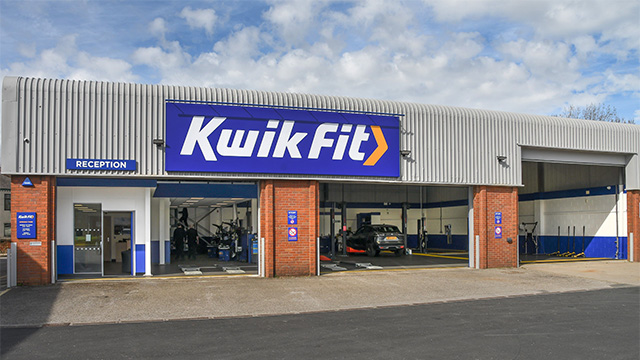Occupancy rates for serviced flats are lower as US firms keep their executives at home. But not all UK operators are suffering
Lucy Barnard
For the serviced apartment operators of the world, the names Regus and HQ Global must cause a grimace or two.
Both these serviced office space companies are experiencing what can only be described as corporate nightmares. This year, Regus confirmed that its US operation lost £9.7m in the quarter ending 31 March 2002. Meanwhile, its biggest competitor, HQ Global, is engaged in Chapter 11 negotiations in the US, with debts believed to be in the region of $100m (£68m).
The performance of UK serviced apartment operators is also weakening. Companies are suffering from the drop-off in US executives posted to this country on long assignments, and rents are falling.
Operators in London have seen rents fall by 5-6% year on year, and have registered a further drop of 2.5-2.7% in the first quarter of 2002. In central London, the decline is even more dramatic, with some firms reporting falls since last September of 10-20% in the City and as much as 30% in the West End.
Despite claims that some degree of stabilisation has occured recently, with occupancy rates improving, industry observers are wondering how the operators can prosper, considering the current mix of low rental incomes and high rental outlays.
Serviced apartment operators, who fulfil a broadly similar role to their office counterparts – leasing space from landlords at a set rate before adding value and renting out to tenants – are battening down their hatches.
As rents slip and occupancy rates slide, they are demanding more flexible lease terms from landlords.
Just like their serviced office operator counterparts, the relatively long leases into which they tied themselves when the market was good are now too onerous when they are having to drop their rates or face longer void periods.
The UK’s largest short-term stay corporate housing operator, BridgeStreet, has extracted itself from a number of traditional five-year leases and is looking for more flexible arrangements with landlords.
BridgeStreet favours US-style contract leases, where operators pay rent only while there is a tenant in the apartment. But the rent passed on to the landlord is around a third higher than under traditional leases with serviced apartment operators.
The massive hotel empire, Meristar Hotels & Resorts, of which BridgeStreet is a wholly owned subsidiary, has already lowered its guidance for the company’s second quarter results, blaming “the sluggish economy and a softness in corporate transient travel”.
Paul Whetsell, chairman and chief executive officer of MeriStar, says that BridgeStreet’s new flexible cost structure has paid immediate dividends.
Operations restructured
“We are now realising the benefits of reducing the number of leased apartments in the second half of 2001, as well as restructuring our operations within the corporate housing division,” he says.
“Unlike hotels, which are fixed assets, BridgeStreet can rapidly expand and contract its inventory in response to shifts in the economy. We will continue to adjust our corporate housing inventory as local market conditions warrant.”
BridgeStreet’s US corporate housing provider rival, the private company Oakwood, even has a customer referral arrangement with Regus, which provides corporate clients with 24-hour accommodation on a flexible basis.
Oakwood, the world’s largest temporary housing provider and the second largest operator in the UK, is also seriously considering changes of lease types.
Spokesman Bob Philips says: “Oakwood is exploring expansion by this option. Many other serviced apartment operators use this method in the UK and it has become accepted in the marketplace.”
Holdings on agency basis
Operators will typically take a cut of around a fifth of the rent. And landlords can employ as many as five or six different operators for the same apartment.
Melissa Thomas of Go Native, a UK-based serviced apartment operator, points out that 90% of her company’s portfolio is now held on an agency basis with contract leases making up the other 10%.
She predicts that agency leases are likely to become the most common arrangement for operators as they seek to divest themselves of as much risk as possible.
Thomas says: “A lot of operators have had their fingers burnt this time and will be reluctant to take that sort of risk again. If we can educate landlords that there is a worthwhile financial upside to working on an agency basis then I think it will become the way forward.”
Another possibility for operators is a form of sale and leaseback, whereby they enter into arrangements with developers or institutional landlords to buy the apartments they control and thus remove the risk.
Far Eastern connections
This is not the route chosen by two rival Far Eastern giants who have arrived in the UK in the past 12 months, via the formation of joint ventures with UK-based companies. Both intend to retain part-ownership and full control over the units.
Last October, Fraser Serviced Residences, part of the massive Singapore-based Centrepoint Properties, took a 50% stake in FairBriar Residence, the UK serviced apartment arm of residential developer and asset manager FairBriar. Fraser also took a 20% stake in the limited partnership owning the properties.
The company has since rebranded the apartments as Fraser Serviced Residences, and has announced that its aim of having a portfolio of 1,000 apartments in Europe within the next three years.
Then, in November, another Singaporean giant, Ascott International, Asia-Pacific’s largest serviced residence operator, signed a joint venture with UK property developer Crown Dilmun to create Somerset, a property vehicle worth £150m, with 783 apartments in London, Manchester and Glasgow. Somerset aims to double its number of units over the next three years.
FairBriar chairman Kevin McCabe (see Interview, p48) is keen to seek more asset management opportunities for the group after announcing a loss last quarter.
His strategy accepts that the firm will suffer from falling rents just as much as the rest of the sector, but that it is not locked into any unwieldy traditional lease structures. It should also benefit from the rising capital value of the units.
Moreover, as more of the world’s big names in serviced accommodation move in on the UK, perhaps these corporates will take on the risk of falling rents and voids.
One of the great difficulties of the UK serviced apartment market is that it has not yet had a chance to become established. The term is used varyingly to mean anything from a number of buy-to-let properties let on short-term leases with very little in the way of additional services to apart-hotels with more or less the level of service one would expect in a hotel.
Concept needs brand image
Perhaps as global serviced accommodation brands sweep into the UK the concept will begin to acquire more of a brand image. This is certainly the desire of Kee Teck Koon, chief executive officer of the Ascott Group, who says: “There is no international branded serviced apartment company in Europe. In most world cities, we would expect to find 10% of leased residential accommodation let as serviced apartments. In London this is 2%.”
It may be that overcoming a difficult market will force both serviced apartments and offices to mutate.










